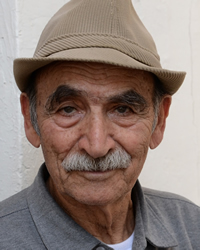Jewish, Bukharan in Uzbekistan

Photo Source:
Copyrighted © 2026
Rini Kools - Shutterstock All rights reserved. Used with permission |
Send Joshua Project a map of this people group.
|
| People Name: | Jewish, Bukharan |
| Country: | Uzbekistan |
| 10/40 Window: | Yes |
| Population: | 500 |
| World Population: | 143,500 |
| Primary Language: | Bukharic |
| Primary Religion: | Ethnic Religions |
| Christian Adherents: | 0.00 % |
| Evangelicals: | 0.00 % |
| Scripture: | Portions |
| Ministry Resources: | No |
| Jesus Film: | Yes |
| Audio Recordings: | Yes |
| People Cluster: | Jewish |
| Affinity Bloc: | Jewish |
| Progress Level: |
|
Introduction
Bukharan Jewish are an indigenous group within Uzbekistan and Tajikistan. They are known as "Bukharan" because they settled primarily in Bukhara, Uzbekistan but they prefer to be known as "Israel" or "Yahudi." They claim descent from the ten tribes of Israel who were exiled to Persia in the fifth century. They speak Bokhara, a Jewish dialect of Tajik.
Ministry Obstacles
Because they are virtually unknown, identifying them is the major obstacle to reaching them. They cannot be reached if they cannot be found.
Outreach Ideas
Pray for the Followers of Christ
Pray for the Entire People Group
Pray that Messianic Jewish would reach out to them with the gospel.
Pray these Jewish would become interested in both the Old and New Testaments.
Pray that the Gentile church would adopt the Bukharic-speaking Jewish for prayer and outreach.
Pray that God would establish Bukharic congregations.
Music is the language of the heart. Pray for Christ's ambassadors to learn the culture and musical style and write beautiful worship music.
Pray for a soon-coming fellowship among them that will multiply throughout Uzbekistan.